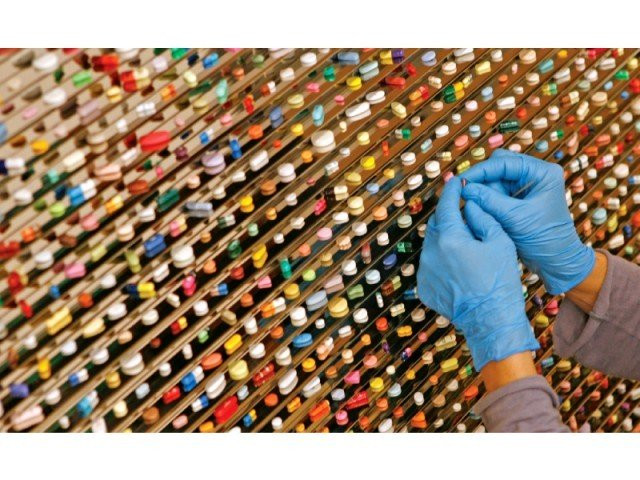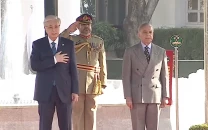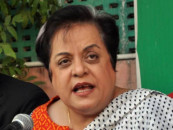Senators hinge better health on PMDC, DRAP performance
Seek reports on licence renewal process, strength of PMDC staff in provinces

Seek reports on licence renewal process, strength of PMDC staff in provinces. PHOTO: REUTERS
The committee gave the apex regulator of doctors until the end of the next month to complete the licence renewal process for doctors.
This was expressed by Senators during a sub-committee on health which met at the Parliament House on Wednesday with National Party (NP) Senator Dr Ashok Kumar in the chair.
The committee reviewed the performance of the Pakistan Medical and Dental Council (PMDC) — which regulates medical education and practitioners — and the Drug Regulatory Authority of Pakistan (DRAP) — which regulates the manufacture and sale of medicines in the country.
During a briefing on the issue of substandard medicines and fake doctors in public and private hospitals, including doctors on deputation at the two tertiary care hospitals in the federal capital, including the Federal Government Hospital (Polyclinic) and the Pakistan Institute of Medical Sciences (Pims), committee member Senator Kalsoom Perveen said that the committee had sought details of doctors working across the country but the PMDC had only provided the committee with data from the federal capital.
Furthermore, she said that PMDC has not submitted details pertaining to verification of the degrees possessed by doctors and their registrations with the body.
Senator Perveen lamented that citizens across the country were facing problems due to the abundance of substandard medicines and fake doctors.
“Hospitals in the backward areas of the country, especially Balochistan, were operating in appalling conditions,” she said.
Dr Kumar stressed that steps should be taken to ensure quality in medicines supplied across the country while provinces should maintain facilities for registering doctors.
PMDC officials told the committee that since health as a subject had been devolved to the provinces, the federation only had control over 30 per cent of doctors in the country. The remaining 70 per cent is divided among the four provinces.
Regarding the registration of doctors, the committee was told that hospital authorities have been warned of action against doctors who are practising without a valid medical licence.
Furthermore, the committee was told that there is little administrative staff in the provinces. Hence, they collect registration applications and then dispatch them to Islamabad.
The subcommittee's convener asked PMDC to present a comparison report on registration of doctors to the committee, detailing progress a month before and after issuing the notice.
The convener further demanded details regarding PMDC officials working in the provinces.
PMDC officials took the opportunity to inform the committee that the Sindh government has yet to submit its nomination for PMDC member, unlike other provinces.
The committee was told that around 22 doctors are working on deputation in the Polyclinic while a further five doctors were on deputation in the Federal Government Hospital. The National Institute of Rehabilitative Medicine (NIRM) Executive Director Dr Fazal Mola said that eight doctors were working on deputation in his organization.
At this, Senator Perveen asked why were authorities not hiring doctors against the vacant positions in hospitals.
Moreover, the committee was told that the degrees of doctors working at the Polyclinic have been verified at three different times while those doctors whose registration has expired have been told to have their licences renewed as soon as possible.
Regarding the issue of fake doctors, sub-committee was told that one such medic found serving at Pims has been sent to jail.
Spurious drugs
DRAP officials told the committee that they have increased the number of drug inspectors from 14 to 21. Moreover, they have launched 23,000 raids in the eight months between April and November 2018. In these raids, 3,445 cases were registered against those committing violations.
Dr Kumar asked DRAP officials to conduct raids in Rawalpindi, hoping that its impact will be felt in other areas as well.
“Effective measures by DRAP would ensure the provision of quality in medicines and help hospitals save innumerable lives,” Dr Kumar said.
DRAP officials were further directed to ensure that medical stores and warehouses across the country, especially in Balochistan, maintain adequate temperature to ensure the quality of drugs and vaccines.
The convener expressed concern over reports of medicines being smuggled into Balochistan from neighbouring countries.
Published in The Express Tribune, February 21st, 2019.



















COMMENTS
Comments are moderated and generally will be posted if they are on-topic and not abusive.
For more information, please see our Comments FAQ